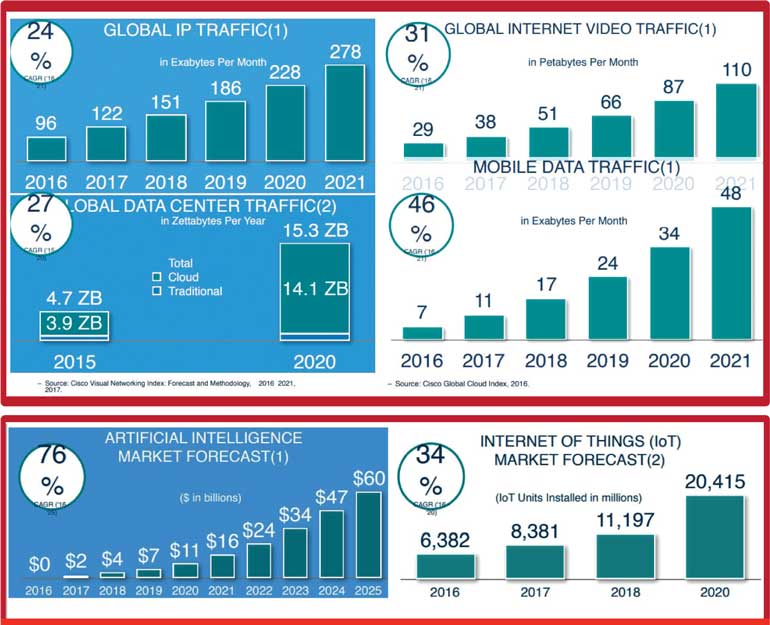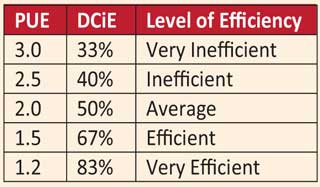Sunday Feb 22, 2026
Sunday Feb 22, 2026
Wednesday, 29 September 2021 00:00 - - {{hitsCtrl.values.hits}}
Historically, Sri Lanka has been an attractive destination for traders and travellers alike, and over time, our nation has become synonymous with hospitality. Prior to COVID-19, tourism was among the most dynamic sectors in our economy, generating between $ 3 and $ 4 billion annually.

 With the movement of people and goods severely restricted globally, tourism and many other crucial sources of foreign exchange will continue to face severe limitations. While all steps must be taken to provide these sectors with the support they need, it is of equal importance to also explore new avenues for growth.
With the movement of people and goods severely restricted globally, tourism and many other crucial sources of foreign exchange will continue to face severe limitations. While all steps must be taken to provide these sectors with the support they need, it is of equal importance to also explore new avenues for growth.
Among the few positive developments to emerge out these disruptions has been the phenomenon of work from home (WFH). Leveraging these capabilities, many enterprises have been able to continue their operations relatively uninterrupted, and in some instances, at an even greater scale than prior to the pandemic.
Fuelling these emerging opportunities are powerful new capabilities in digitalisation that in turn rest on a foundation of critical technology infrastructure. This includes everything from high-speed internet capabilities to data hosting. This is where we believe Sri Lanka has the potential to leverage a new kind of hospitality. Not for people, but for data.
Virtual goldmine
Digitalisation is the new norm, and there is an escalating demand for IT Infrastructure services. Increasingly, instead of building up their individual server capacity, companies are outsourcing data storage requirements to third party data centres in order to centralise and accelerate shared IT operations and equipment. Data centre migration services were projected to grow by 24% by 2024. Post-pandemic, 87% of global IT decision-makers seek to accelerate this journey.
New breed of technologies
A data centre is a facility that centralises an organisation›s shared IT operations and equipment for the purposes of storing, processing, and disseminating business-critical data and applications. Modern data centres provide high-grade facilities and go beyond colocation into cloud and managed services.
While this was already a common trend prior to COVID-19, today the demand for server space and managed services is growing exponentially in Sri Lanka, and more so across the South Asian region. This positions us exceptionally well to service the rapidly rising demand for data hosting emerging out of local corporates, and regional enterprises seeking cost and operational advantages. If managed correctly, Sri Lankan data centres could be turned into a virtual goldmine.
 Local growth, global potential
Local growth, global potential
Sri Lanka was ranked among the top 25 destinations of A.T. Kearney’s 2019 Global Services Location Index (GSLI) – a leading benchmark of national competitiveness in tech services. This classification was based on financial attractiveness, skills and availability of qualified personnel, and a welcoming business environment, of which, our people remain one of our best assets.
Additionally, Sri Lanka is ranked the second-best in the world for digital nomads, scoring 238 out of 320 points. Colombo is also recognised as the fourth-best city in the world to work remotely from. In calculating the digital nomad score index, cost of living, safety, average internet speed, and technology adoption, were considered. As much as Sri Lanka is known for its glamorous natural beauty, it has the potential to take centre stage as one of the world’s best tech hubs.
Building on the strong momentum gained so far will require greater utilisation of the globally competitive data hosting capabilities that have been developed, and greater investment to boost capacity even further.
Most of Sri Lanka’s largest and most dynamic enterprises are already taking advantage of this quality infrastructure, resulting in significant competitive advantage. It allows them to meet their aspirations for digitalisation while containing investments and operating costs.
Unique advantages
There are many other factors working in Sri Lanka’s favour, including a highly favourable policy towards attracting IT investment while developing local talent. The Government is also working towards ambitious targets for implementation of e-governance initiatives.
The country is increasingly recognised as an ideal location for new types of opportunities. New job categories – including a uniquely vibrant start-up culture and new approaches to work are also emerging, as evidenced by the rapid expansion of co-working spaces like Hatch. Sri Lanka is also introducing critical new data security regulations. The proposed Data Protection Bill is expected to establish the necessary institutional framework and safeguard the digital ecosystem.
All of these factors point to the start of a new phase of Sri Lanka’s development. Unlike previous eras, however, in the ‘new normal’ our knowledge and IT expertise will be our greatest strength.
Positive progress already underway
Globally, data centres receive their core certifications from the Uptime Institute and The Telecommunications Industry Association (TIA). Uptime Institute certifies the designing and building of data centres based on evaluation of standardised and precise requirements, while TIA is responsible for setting standards on guaranteed availability levels (942 Rate) in the following tiers:
Already, Sri Lanka is home to two Tier 3 certified data centres operated by Dialog and SLT in Malabe and Pitipana. Meanwhile, construction of the new data centre at Orion City by OrionStellar has already been completed and the facility is now ready to go live as Sri Lanka’s first carrier-neutral and high-density data centre. This is the first Tier 3 certified data centre within Colombo city limits.
Together with ISO/IEC 27001:2013 (ISO 27001) certifications, Sri Lanka will also be able to offer confidentiality, integrity, availability, and security best practices on par with some of the most advanced in the region.
Geographic advantages
In addition to its globally competitive technical expertise, Sri Lanka serves as a vibrant maritime link between East and West.
Moreover, Sri Lanka’s location in the North-Western region of the Indo Australian plate, well away from the destructive plate boundary, means it’s safe from seismic events. Accordingly, our earthquake hazard is classified as very low with less than a 2% chance of a potentially damaging earthquake in Sri Lanka in the next 50 years. In terms of data storage, this is an unbeatable advantage as even a small seismic event can have serious repercussions on a live data centre.
Sri Lanka is a tropical country with favourable weather patterns and is free from most natural hazards. There is no snowfall, and hurricanes and tornadoes are rare, offering further peace of mind to potential offshoring clients.
Sri Lanka’s location and its historical affinity for communications technology mean that today, the island is connected to no less than eight international submarine cables. This enables Sri Lankan data centres to offer globally competitive connectivity and reliability. By comparison, regional leaders like Singapore have seven international cables, whilst Hong Kong has 11.
Like Hong Kong, Sri Lanka is ideally positioned off the mainland of India, a large and economically vibrant neighbour with strong trade and diplomatic ties. These pre-existing links could easily serve as a catalyst for new opportunities in Sri Lanka.
Our central location on a global scale also means that Sri Lanka is never too far from any time zone, meaning that local IT and engineering teams can easily connect with global enterprises during their operating hours. In many ways, this represents an opportunity to serve as a virtual gateway between East and West.
Electricity supply and connectivity
Relative to its regional peers, Sri Lanka has a reliable and high-quality supply of power with 93% electrification coverage and an uninterrupted power supply. Also, being connected to eight international submarine cables, Sri Lanka ensures ample redundancy and connectivity. Moreover, broadband, leased line and satellite connectivity are widely available with high-speed connectivity and seamless delivery of hosted applications.
Power Usage Effectiveness (PUE)
Power Usage Effectiveness (PUE) and its reciprocal Data Centre Infrastructure Efficiency (DCIE) are widely accepted benchmarking standards in measuring power efficiency. The Uptime Institute also recommends a comprehensive benchmark named Corporate Average Data Centre Efficiency (CADE).
The power utilisation of a data centre is dependent on the cooling of heat-generating server infrastructures. Therefore, the cooling technology used in a data centre defines its level of efficiency. Here, too, Sri Lanka is showing signs of regional leadership, with the upcoming data centre at Orion City designed to use in-raw cooling technology to achieve an optimum PUE of 1.4 - well within the efficiency required limits.
While economic development has been drastically impacted by the pandemic, the island has many significant projects, including most notably, the Colombo Port City Project, which is expected to give rise to a surge in local and international services sector investment, including IT. This, too, will create lucrative opportunities in data centre solutions.
Sri Lanka has also historically been quick to explore and adopt new technology. It was the first in South Asia to set up 4G infrastructure, and 5G services are already partially up and running. The country has a thriving ecosystem of start-ups and new tech ventures, as well as globally recognised leaders like 99x, Millennium IT, and Virtusa.
 Cashing in on a golden opportunity
Cashing in on a golden opportunity
At present, it is estimated that Sri Lankan enterprises outsource just 15% of their IT requirements. In Asia-Pacific that rate is closer to 25% and in Australia, it stands among the highest, with 75% of enterprise IT being outsourced.
Given the above factors, Sri Lanka can offer fully-fledged data centres at costs approximately 25% lower than its counterparts in Singapore and Hong Kong.
Drawing on the success that both these island nations have enjoyed in providing data offshoring to the mainland, the parallels for Sri Lanka become more enticing. Given all the natural advantages Sri Lanka enjoys, and backed by careful policy and investment, the island could become the perfect destination for offshore data centres.
These capabilities can be used to attract leading regional enterprises to Sri Lanka –to set up operations in upcoming mega-developments like Colombo Port City, or to utilise our globally offshoring and disaster recovery applications. If expedited, it could quickly become a much-needed source of strength for Sri Lanka’s weakening foreign currency reserves.
(The author is a specialist in enterprise communication solutions and data centre businesses with over 30 years of collective experience, including the launch of Sri Lanka’s first-ever Tier 3 certified data centre. Currently, he serves as Chief Operations Officer at OrionStellar. He holds a B.Sc. in Engineering, an MBA from the University of Colombo, and a Diploma in Management Accounting from CIMA UK.)
FOOTNOTES
1 The role of cloud for companies in a post-pandemic world: http://www.bbc.com/storyworks/future/a-better-tomorrow/the-role-of-cloud-for-companies-in-a-post-covid-19-world